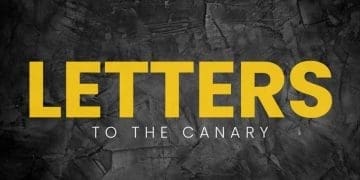On 3 February, Theresa May offered to be “a bridge” between the EU and President Trump. The EU did not accept this offer. And its leaders were mocking in their response. As the Lithuanian President told the BBC:
I don’t think there is a necessity for a bridge – we communicate with the Americans on Twitter.
Ted Malloch, who is Trump’s choice for EU ambassador, has since commented on the situation. Malloch has an aggressive attitude towards the EU. He has said that using Britain in such a way would only make sense if we secured a good deal with the EU. Which is a problem, as the PM hoped her relationship with Trump might strengthen her bargaining position. Yet it’s starting to look like her offer could have the opposite effect.
Malloch and the EU
There has been a strong and negative response to Trump’s choice for EU ambassador. Largely, this is due to statements from Malloch such as:
I had in a previous career a diplomatic post where I helped bring down the Soviet Union. So maybe there’s another union that needs a little taming.
This prompted a strong response from people within the EU. Particularly one which was drafted in part by Guy Verhofstadt, the EU’s lead Brexit negotiator:
In the past weeks, Ted R. Malloch, the likely nominee by US President Trump to become the new US ambassador to the European Union, made a series of public statements denigrating the EU.
In these statements, the prospective nominee expressed his ambition to ‘tame the bloc like he brought down the Soviet Union’, eloquently supported dissolution of the European Union and explicitly bet on the demise of the common currency within months.
These statements reveal outrageous malevolence regarding the values that define this European Union and, if pronounced by an official representative of the United States, they would have the potential to undermine seriously the transatlantic relationship that has, for the past 70 years, essentially contributed to peace, stability and prosperity on our continent.
Malloch in interview
John Pienaar interviewed Malloch on BBC 5 Live. He asked Malloch about the possibility of Theresa May’s UK acting as a bridge between the US and the EU. Malloch did not object to the idea. In fact, he responded:
I think it’s very much a possibility; she’s already played that role. Clearly when it comes to discussion of NATO, she’s already made headway. So yes, I think it’s a very useful function. Of course the problem there is the reality of Brexit, and the UK is leaving that same European Union.
Pienaar described this last point as a “big problem”. Malloch replied:
[Laughing] I don’t think it’s a small one.
In this context, Pienaar asked what Theresa May could deliver for the EU in a post-Brexit intermediary role:
Well a lot would depend on – and you mentioned the individual’s name already [referring to Guy Verhofstadt] – what is negotiated between the EU and the UK. If that is a very punitive deal, that in fact does not get off the ground, has no start, and the UK does not get to participate, you could say, in the benefits of some relationship with Europe, then I think that role is diminished.
Malloch was also clear about what he sees as the future for the EU:
I think that the hope is that they can come to some terms, and some understanding, and that the union itself, which is in a period of adjustment, will see its role as one of economic integration and less of political.
Stuck in the middle without EU
The US and EU are both braced for a more hostile relationship. But it looks like neither entity sees the UK role in this showdown as a vital one. May has attempted to position herself as a useful intermediary between the EU and the US. But the EU clearly doesn’t want her in that role. And it looks like the US may only accept such an arrangement if we secure access to EU benefits. Which ultimately means we may have given the EU yet another reason not to give us a good deal.
Get Involved!
– Read our TrumpWatch articles.
– You can also support The Canary so we can continue to bring you the news that matters.
Featured image via YouTube










